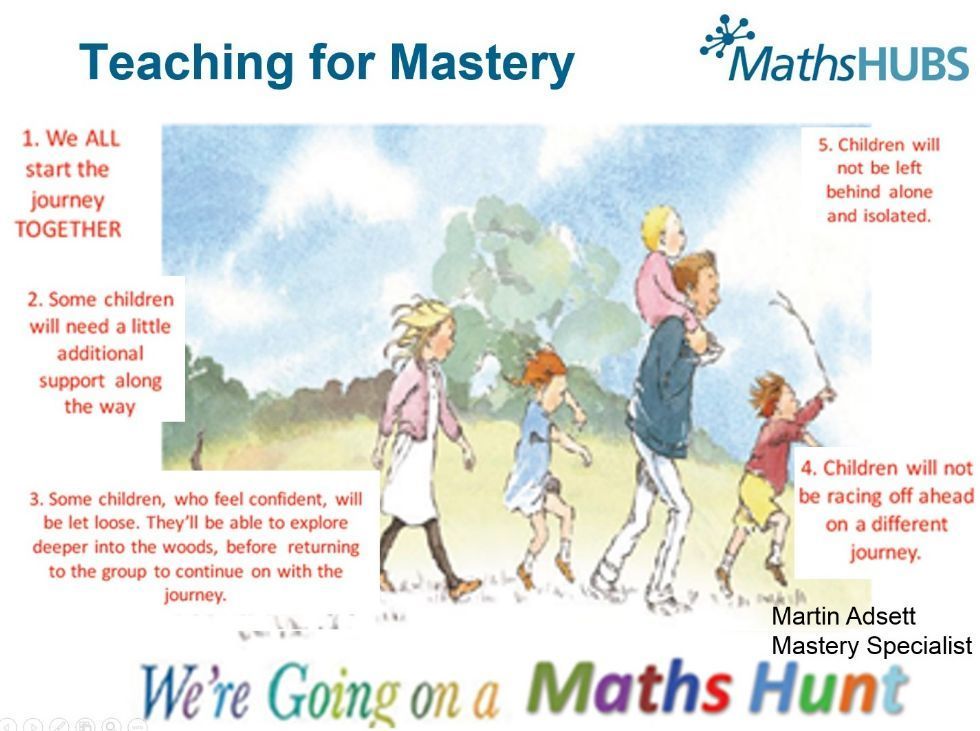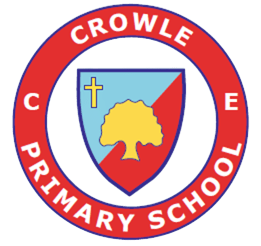Mathematics

This is our "YouCan Toucan" to remind us that we can all achieve in maths!
Classroom Beliefs
- Mistakes are valuable.
- Everyone can learn Maths.
- Questions are really important.
- Depth is more important than speed.
- Maths is about making connections.
- Everyone makes MARVELLOUS MISTAKES!
Mathematics Curriculum Statement
At Crowle CE First School, we believe that Mathematics is a tool for everyday life. It is a whole network of concepts and relationships which provide a way of viewing and making sense of the world. It is used to analyse and communicate information and ideas and to tackle a range of practical tasks and real life problems. It also provides the materials and means for creating new imaginative worlds to explore.
Intent
At Crowle CE First School, we aim for all pupils to experience the beauty, power and enjoyment of Mathematics and develop a sense of curiosity about the subject with a clear understanding. We promote a positive ‘can do’ attitude and acknowledge and learn from our ‘Marvellous Mistakes’. We believe all children can achieve in Mathematics, and we teach for secure and deep understanding of Mathematical concepts through manageable steps. We use mistakes and misconceptions as an essential part of learning and provide challenge through problem-solving and reasoning tasks. We believe that children need to spend time becoming true masters of content, applying and being creative with new knowledge in multiple ways. Our expectation is that the majority of pupils will move through the programmes of study at broadly the same pace. However, decisions about when to progress should always be based on the security of pupils’ understanding and their readiness to progress to the next stage. Pupils who grasp concepts rapidly should be challenged through being offered rich and sophisticated problems before any acceleration through new content. Those who are not sufficiently fluent with earlier material should consolidate their understanding, including through additional practice, before moving on.
We aim for all pupils to:
- become fluent in the fundamentals of mathematics so that they develop conceptual understanding and the ability to recall and apply knowledge rapidly and accurately.
- be able to solve problems by applying their mathematics to a variety of problems with increasing sophistication, including in unfamiliar contexts and to model real-life scenarios.
- reason mathematically by following a line of enquiry and develop and present a justification, argument or proof using mathematical language.
- have an appreciation of number and number operations, which enables mental calculations and written procedures to be performed efficiently, fluently and accurately to be successful in mathematics.
Implementation
At Crowle CE First School, we have adopted a mastery approach to the teaching and learning of Mathematics in our school. Underlying this approach is the belief that all children should work together to become fluent mathematicians who are able to reason and solve a variety of problems by applying what they have learnt in a range of contexts. Conceptual understanding is developed through concrete and visual representations and children are given the opportunity to explain their reasoning as part of our daily Maths lessons. Children are supported through specific planned interventions and are challenged by being exposed to a variety of rich and sophisticated problems. Key Stages 1 and 2 hold 5-minute fluency sessions daily, which enable the children to practise, embed and, therefore become fluent in place value and the four operations. We encourage students to have a positive mindset and advocate that all children are able to succeed in Mathematics, especially when ‘Marvellous Mistakes’ are made!
Within our lessons, children are taught new concepts using the CPA (Concrete, Pictorial, Abstract) approach:
- Concrete – students should have the opportunity to use concrete objects and manipulatives to help them understand what they are doing.
- Pictorial – students should then build on this concrete approach by using pictorial representations. These representations can then be used to reason and solve problems.
- Abstract – with the foundations firmly laid, students should be able to move to an abstract approach using numbers and key concepts with confidence
Maths Lesson Structure
- Fluent in 5 (Mental arithmetic)
- Lesson objective and key vocabulary
- Explore it (A range of concrete, pictorial and abstract tasks to teach a concept)
- Secure it (A selection of varied, independent questions to develop fluency)
- Discuss it (‘True/False’, ‘Spot the mistake’, ‘Explain why’ and ‘Prove it’ questions to develop reasoning skills)
- Deepen it (Open-ended, problem-solving tasks)
Teachers use precise questioning in class to test conceptual and procedural knowledge and assess children regularly to identify those requiring intervention, so that all children keep up. Children’s explanations and their proficiency in articulating mathematical reasoning, with the precise use of mathematical vocabulary, are supported through the use of stem sentences provided by the teacher.
For those children who may take longer to grasp a concept, teachers use pre-teach sessions to introduce new concepts practically before the next lesson to develop confidence and post-teach sessions to immediately tackle misconceptions and consolidate learning from the morning lesson. Bespoke Mathematics intervention programmes are used to close the gaps for those children who are performing below expected standard. For small group interventions, we use Number Stacks, which breaks down key number and calculation skills into simple, manageable steps and allows opportunities to practise each step in practical ways. For 1:1 intervention, we use Maths Plus 1, which provides children with the building blocks for number and introduces simple calculations.
Impact
By the end of Year 4, we aim for children to be fluent in the fundamentals of Mathematics with a clear conceptual understanding and the ability to recall and apply knowledge rapidly and accurately. They should have the skills to solve problems by applying their Mathematical skills to a variety of situations with increasing sophistication, including in unfamiliar contexts and to model real-life scenarios. Children will be able to reason mathematically by following a line of enquiry and develop and present a justification, argument or proof using Mathematical language.
We measure the children's progress and attainment through a rigorous cycle of pupil progress including pre/post-unit assessments, formative assessment throughout a lesson, termly NTS assessments and pupil progress meetings. Scrutiny by the headteacher, Maths Lead and Governors ensure that the curriculum intent is supported through the outlined implementation in all classrooms.
As a result of curriculum development during 2018/19, and the existing good practice, we have a community of enthusiastic Mathematicians who enjoy showcasing their fluency, problem-solving and reasoning skills. They are confident to tackle new challenges and love to discuss and share their ideas. Pupils are performing in line with expected or beyond expected attainment. Pupils with SEND are making progress in Mathematics through quality first teaching and bespoke intervention programmes. Pupils transition from EYFS into KS1 fully prepared for the challenges of the National Curriculum while our Year 4 leavers are equipped with the necessary skills for the next steps of their learning journey at Middle School.

